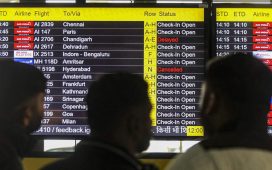
Shortly thereafter as Economic Adviser he had begun to witness the incipient signs of change.
As finance minister, he was happy to have me as Joint Secretary in the Department of Economic Affairs and handling the negotiations with the IMF and World Bank. These were daunting negotiations, and he was determined to ensure that India’s reputation as meeting its debt obligations without any hint of default remained untarnished.
The negotiations were primarily aimed at securing IMF assistance for the upper credit tranche agreements. With the World Bank a structural adjustment loan was being negotiated. Throughout this period, he supported the team I was privileged to be part of. I remember one particularly hot afternoon when negotiations with the IMF broke down, and they had packed their bags to leave. Dr Singh had instructed me to report to him immediately if any critical divergence arose during the negotiations. I went to his house, and he told me firmly that they must not be allowed to leave, as this would have an exceedingly negative impact on India’s market sentiment. He followed up by coming to the office that very afternoon, and we were able to conclude arrangements with the IMF and the World Bank, securing various windows for assistance.
Throughout this process, he showed sagacity and wisdom, recognising the importance of adherence to debt repayment, no matter how much persuasion was required or to whom the requests were made. He never allowed his high office to come in the way of fulfilling his responsibilities.We met again in Parliament when he had assumed the high office of Prime Minister. In sharp contrast to his tenure as finance minister, he had to focus on securing consensus both within the Congress and among allied parties. The low-hanging fruits of reform had been secured, and the remaining ones required much greater calibration and consensus-building.As Prime Minister, the audaciousness with which he pursued the nuclear deal with the US stands out very sharply. This effort to improve India’s dynamics with the superpower was laudable.
He was building on the achievements of high GDP growth following Vajpayee’s reforms as well as a nuke explosion.
In fact, the nuclear deal was part of his vision to make India an attractive investment destination, no matter what was at stake for the future of the government. Regrettably, the full effects of the nuclear deal are yet to be realised due to the lack of enabling changes in laws, particularly regarding insurance, which would allow private party participation. He was the perfect example of domain expertise coupled with an understanding of the political landscape.
Dr Singh was the master of the art of the possible in the political economy of change. We will remain indebted to him for steering India on the path of growth and toward its rightful place in the committee of nations.
The writer is former Rajya Sabha member and chairperson of FC












